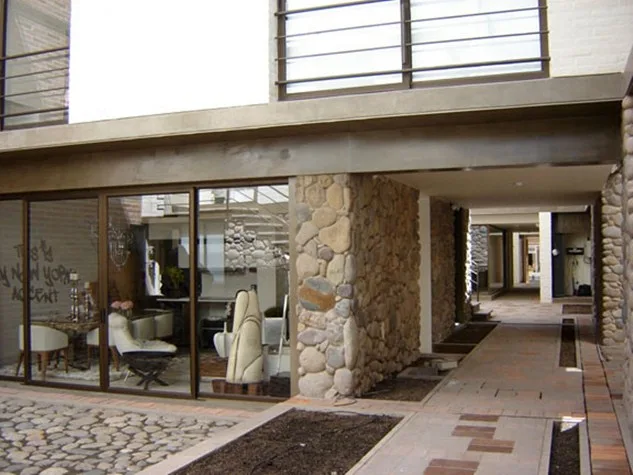For many poor Ecuadorians, illegal Imbabura Province mine was a financial godsend
By Alexandra Valencia and Luc Cohen
Ecuador’s market-friendly President Lenin Moreno is cracking down on illegal gold miners, who are increasingly encroaching on formal mines, but keeping them away from an Australian billionaire’s concession for good may prove a tall order.

Alba Martinez says her family benefited from the illegal mine.
Moreno last month sent 4,000 troops and police to clear thousands of miners from a gold and copper mining concession belonging to Hancock Prospecting, controlled by Gina Rinehart, Australia’s wealthiest person.
Now, with the area under a 60-day state of emergency and military and police guarding nearby Buenos Aires parish, authorities say illegal mining, also known as wildcatting, at the Imba-2 concession has stopped.
But the move, which followed a request by Rinehart’s company that its contract be suspended due to the unrest, now risks sparking a backlash with locals.
For dwellers of the hardscrabble agricultural community, the “plastic city” of tents and makeshift restaurants near the mines brought a jolt of economic activity to the remote, mountainous area. Some wildcat miners pledge to return once the emergency measures end.
“This town was left poorer than it had been in a lifetime,” said 50-year-old Buenos Aires resident Alba Martinez, whose husband abandoned his crops when he went to work at the mine two years ago. After the operation, he and the couple’s two sons – also miners – left town looking for work.
The standoff underscores a wider conundrum for governments in the developing world, including Latin American, African and Asian countries, as they seek to court big miners and the jobs and tax revenues they typically bring in, while trying to avoid a backlash among locals, many of whom see wildcat prospecting as their birthright.
“Of course, illegal mining generates uncertainty,” Ecuadorean Vice President Otto Sonnenholzner, who chairs a task force on combating illegal mining, told Reuters on the sidelines of a conference last month. “There’s no question of that. But what is certain is that the national government will not tolerate any illegal activity.”

More than 4,000 entered the mining area to shut down the unauthorized operation.
Moreno has courted the sector by eliminating a windfall tax on miners, lowering a sliding scale of royalty payments, and reducing a capital gains tax on mining company transfers.
Last year, Ecuador received $742 million in foreign direct investment in the mining sector, more than double 2017 levels.
Moreno cheered the recent opening of the Chinese-owned Mirador copper mine in southern Ecuador, as well as progress at SolGold PLC’s Cascabel project in mountainous Imbabura province. That is where the concessions of Hancock’s local subsidiary, Hanrine, are also located.
But obstacles have emerged. Communities near the Cascabel mine challenged the project, seeking a popular referendum. That has been turned back by Ecuador’s Constitutional Court, but similar challenges are pending.
Several companies, including Canadian explorers Core Gold Inc and Luminex Resources Corp have alerted investors to risks posed by illegal miners, ranging from depletion of reserves to environmental damages for which they could be held accountable.
Hancock declined to comment. Core Gold and Luminex did not respond to requests for comment.
Illegal miners flocked to Hanrine’s Imba-2 concession soon after a farmer struck fool’s gold while building a nearby road in late 2017. As the ensuing gold rush attracted thousands, the government grew concerned about human trafficking, environmental damages and extortion by armed rebel groups.
As a result, Hanrine could not access the area. In March 2018, authorities issued a resolution ordering the end of illegal mining on the concession.
But the wildcat mining continued to grow, and this March Hanrine requested that its contract be suspended so that the clock on its four-year exploration license would stop ticking, according to Santiago Chamorro, who coordinates mining policy for Ecuador’s northern region. He said the suspension was granted on July 19.
The state of emergency in Buenos Aires, one of several such crackdowns on illegal mining by Moreno, ended an economic boom that had taken hold in the area.
Buenos Aires resident Martinez, for example, had taken out loans to run a catering business, which disappeared overnight after authorities cleared the mine. On a Friday morning about two weeks ago, the 60 soldiers and police occupying the town vastly outnumbered residents out on the streets, while restaurants, inns and credit unions all had their doors shut.
“The people have left, and now we do not have anything. There is not a single source of jobs,” she said.
Chamorro said the development of formal, large-scale mining would bring jobs to the area, pointing to laws requiring 80% of mining workers to be Ecuadorean citizens and 60% of royalties from a mine to be invested in nearby communities.
“Illegal mining is not the cause, but the effect…of the lack of employment, we have to be sincere,” Chamorro said in an interview at his office in Ibarra, Imbabura’s provincial capital.
But in Buenos Aires, two former miners said they were plotting to return to the mine once the two-month state of emergency ended and security forces retreated.
One of them, a 20-year-old who gave his name as Alberto and said he earned up to $40 a day during nine months working at the illegal mine, was skeptical of the government’s assurances big mining would bring jobs.
“Once the company arrives, there will be nothing left for the people,” he said.
__________________
Credit: Reuters, www.reuters.com


















